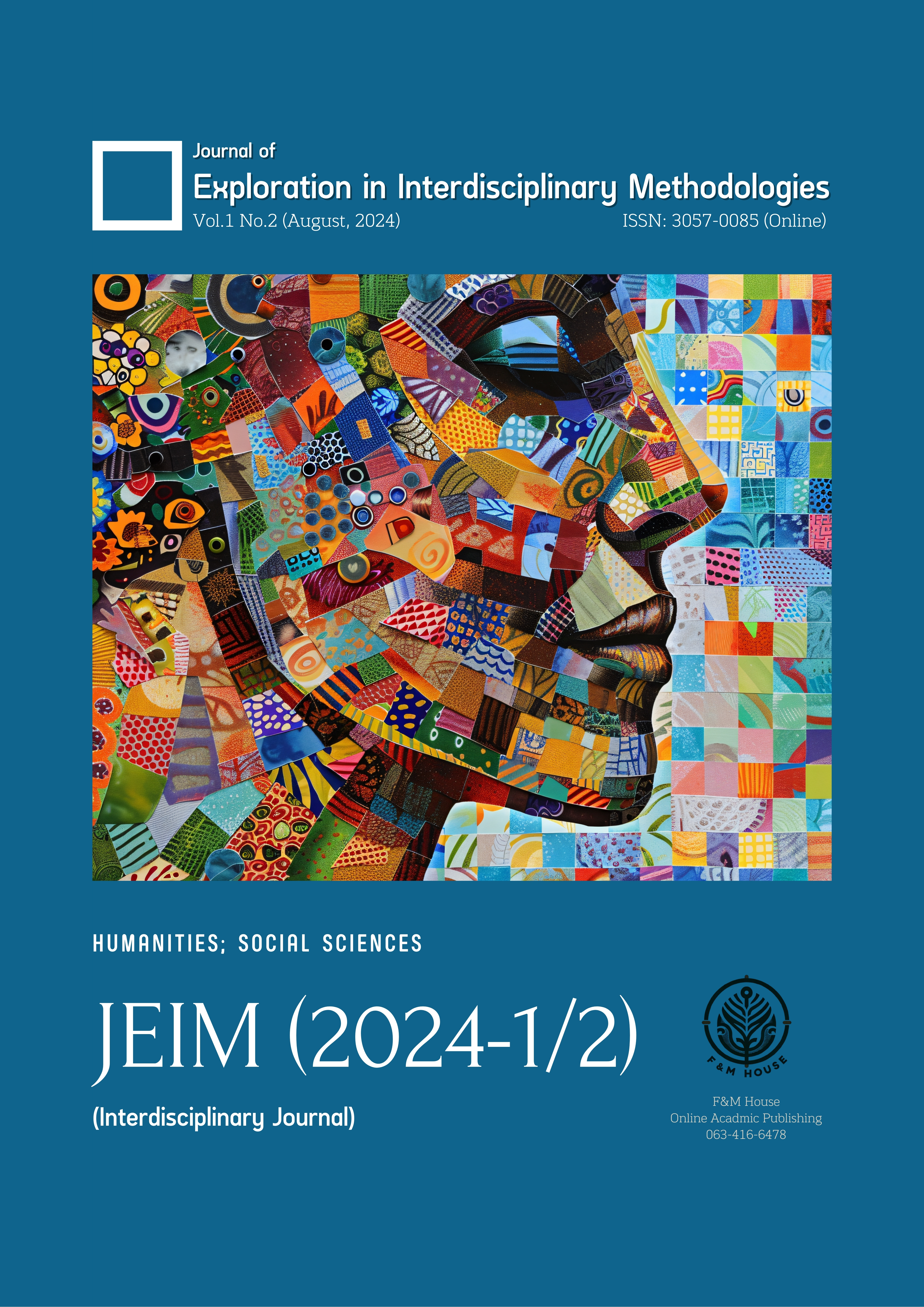Humanities and Environmental Ethics: Bridging Cultural Studies and Sustainability
คำสำคัญ:
Humanities, Environmental Ethics, Sustainability, Cultural Studies, Interdisciplinary Collaborationบทคัดย่อ
This paper explores the vital role of the humanities in shaping environmental ethics and sustainability practices. By examining the contributions of literature, visual arts, philosophy, and cultural studies, the paper highlights how these disciplines provide ethical frameworks and cultural insights that are essential for fostering sustainable relationships with the environment. The paper also discusses the challenges of integrating ethical theories with practical sustainability efforts and emphasizes the opportunities for interdisciplinary collaboration between humanities scholars, environmental scientists, and policymakers. The integration of cultural heritage and diverse perspectives into global sustainability initiatives is presented as a crucial pathway for addressing the complex environmental challenges of our time.
เอกสารอ้างอิง
Attfield, R. (2014). Environmental ethics: A very short introduction. Oxford University Press.
Barry, A., & Born, G. (2013). Interdisciplinarity: Reconfigurations of the social and natural sciences. Routledge.
Barthel, S., Crumley, C., & Svedin, U. (2013). Bio-cultural refugia: Combating the erosion of diversity in landscapes of food production. Ecology and Society, 18(4), 71.
Batchelor, S. (1997). Buddhism without beliefs: A contemporary guide to awakening. Riverhead Books.
Beardsley, J. (1998). Earthworks and beyond: Contemporary art in the landscape (3rd ed.). Abbeville Press.
Berkes, F. (2008). Sacred ecology (2nd ed.). Routledge.
Brennan, A., & Lo, Y. S. (2016). Environmental ethics. Stanford Encyclopedia of Philosophy.
Buell, L. (2005). The future of environmental criticism: Environmental crisis and literary imagination. Blackwell Publishing.
Callicott, J. B. (1989). In defense of the land ethic: Essays in environmental philosophy. SUNY Press.
Callicott, J. B., & Ames, R. T. (Eds.). (1989). Nature in Asian traditions of thought: Essays in environmental philosophy. SUNY Press.
Carson, R. (1962). Silent spring. Houghton Mifflin.
Cochran, P. A. L. (2014). Ethical research across cultures: Considerations for policy and practice. Social Work and Society, 12(1), 1-12.
Cronon, W. (1995). Uncommon ground: Rethinking the human place in nature. W. W. Norton & Company.
Deloria, V. (2003). God is red: A Native view of religion (3rd ed.). Fulcrum Publishing.
Demos, T. J. (2016). Decolonizing nature: Contemporary art and the politics of ecology. Sternberg Press.
DesJardins, J. R. (2006). Environmental ethics: An introduction to environmental philosophy (4th ed.). Wadsworth Publishing.
Gablik, S. (1991). The re-enchantment of art. Thames and Hudson.
Glotfelty, C., & Fromm, H. (Eds.). (1996). The ecocriticism reader: Landmarks in literary ecology. University of Georgia Press.
Heise, U. K. (2008). Sense of place and sense of planet: The environmental imagination of the global. Oxford University Press.
Homewood, K. M., & Rodgers, W. A. (1991). Maasailand ecology: Pastoralist development and wildlife conservation in Ngorongoro, Tanzania. Cambridge University Press.
Huntington, H. P. (2000). Using traditional ecological knowledge in science: Methods and applications. Ecological Applications, 10(5), 1270-1274.
Ingold, T. (2000). The perception of the environment: Essays on livelihood, dwelling, and skill. Routledge.
Jamieson, D. (2008). Ethics and the environment: An introduction. Cambridge University Press.
Kates, R. W., Clark, W. C., Corell, R., Hall, J. M., Jaeger, C. C., Lowe, I., ... & Svedin, U. (2001). Sustainability science. Science, 292(5517), 641-642.
Kimmerer, R. W. (2013). Braiding sweetgrass: Indigenous wisdom, scientific knowledge, and the teachings of plants. Milkweed Editions.
Kroeber, K. (1994). Ecological literary criticism: Romantic imagining and the biology of mind. Columbia University Press.
Lai, K. (2003). Learning from Chinese philosophies: Ethics of interdependent and contextualized self. Routledge.
Leopold, A. (1949). A sand county almanac: And sketches here and there. Oxford University Press.
Light, A., & Rolston, H. (2003). Environmental ethics: An anthology. Blackwell Publishing.
Menzies, C. R., & Butler, C. F. (2006). Introduction: Understanding ecological knowledge. In C. R. Menzies (Ed.), Traditional ecological knowledge and natural resource management (pp. 1-17). University of Nebraska Press.
Merchant, C. (1980). The death of nature: Women, ecology, and the scientific revolution. Harper & Row.
Naess, A. (1973). The shallow and the deep, long-range ecology movement: A summary. Inquiry, 16(1), 95-100.
Nash, R. F. (1982). Wilderness and the American mind (3rd ed.). Yale University Press.
Norton, B. G. (2005). Sustainability: A philosophy of adaptive ecosystem management. University of Chicago Press.
Norton, B. G., & Toman, M. A. (1997). Sustainability: Ecological and economic perspectives. Land Economics, 73(4), 553-568.
Orr, D. W. (1994). Earth in mind: On education, environment, and the human prospect. Island Press.
Plumwood, V. (2002). Environmental culture: The ecological crisis of reason. Routledge.
Posey, D. A. (1985). Indigenous management of tropical forest ecosystems: The case of the Kayapó Indians of the Brazilian Amazon. Agroforestry Systems, 3(2), 139-158.
Rolston, H. III. (1988). Environmental ethics: Duties to and values in the natural world. Temple University Press.
Sandler, R., & Cafaro, P. (2005). Environmental virtue ethics. Rowman & Littlefield.
Smith, A. (2020). Humanities in the modern world: An introduction. Oxford University Press.
Taylor, P. W. (1986). Respect for nature: A theory of environmental ethics. Princeton University Press.
Taylor, P. W. (1986). Respect for nature: A theory of environmental ethics. Princeton University Press.
White, L. (1967). The historical roots of our ecological crisis. Science, 155(3767), 1203-1207.







